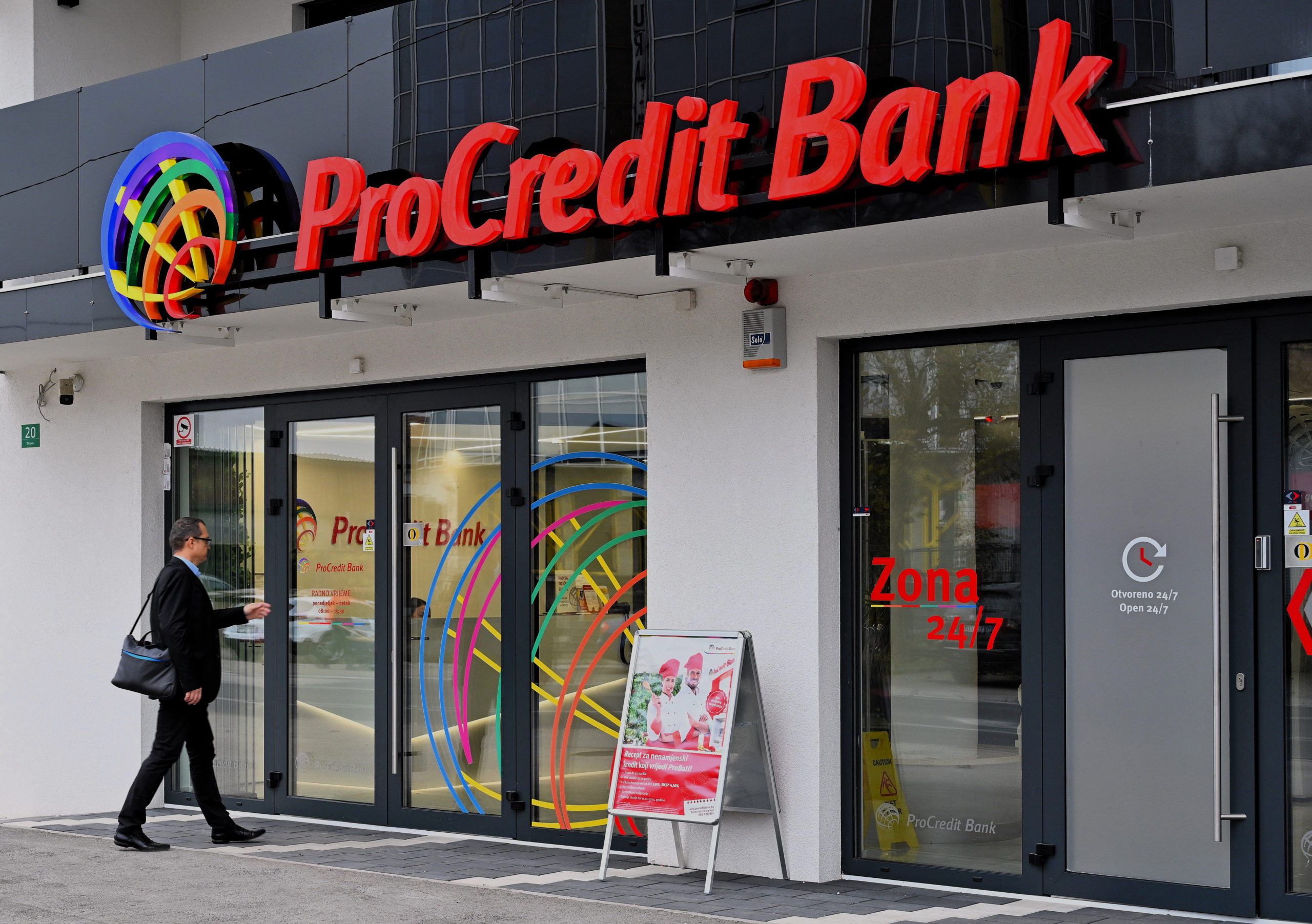Hubert Spechtenhauser, CEO of ProCredit Holding AG, recently made an appearance on the “MEHRWERT – Der GS&P Podcast”. In a conversation with GS&P portfolio manager Christoph Schlienkamp, he spoke about ProCredit’s business model, the geopolitical risks in the group’s target markets of South Eastern and Eastern Europe, and sustainability, a core element of the company’s strategy. Here is an excerpt from their conversation:
You describe your bank as development-oriented. What does that mean in concrete terms, and how does it play out in day-to-day business?
The countries in which we operate in South Eastern and Eastern Europe have considerable needs in terms of economic, environmental, and social development. We want to positively influence and support this development, in particular through our business with 75,000 small and medium-sized enterprises. The reason for this is that these companies account for over 60% of investment and over 70% of jobs in our countries and are therefore of central importance for development.
We position ourselves as a reliable “Hausbank” for these customers and offer them comprehensive support, from loans to deposits and transactions. We attach great importance to providing advice on a level playing field that does justice to the complexity of our customers’ business models. We do this very successfully, as our customers regularly tell us that this is not always the case with other banks.
Which regions or customer groups are particularly exciting for you at the moment – and where are you treading more cautiously?
As I said, our regional focus is on South Eastern and Eastern Europe, where around 90% of our lending volume is concentrated. In terms of industries, we cover all the major sectors in these countries. The largest share of lending goes to trade (25%), local production (18%), and agriculture (15%). These shares vary from country to country, depending on the particular economic structure. We currently see strong growth potential for our banks in all of our countries of operation. The markets there are attractive due to the high growth rates, the low penetration with banking products, and the positive tailwind provided by the prospect of EU accession.
We generally exercise caution when entering into customer relationships, particularly in the lending business: We analyse corporate customers very thoroughly and comprehensively – for example, with regard to their business model, ownership structure, management, and investment planning. As a rule, we do not establish customer relationships by granting loans. This results in a very low cost of risk of approximately 20 bp over the long term compared to the market average. This is on par with large Western European banks and represents a fraction of the usual cost of risk in our countries of operation. The combination of higher margins and low cost of risk offsets the disadvantage that our group faces by virtue of being relatively small compared to many competitors, such as large Italian and Austrian banks and leading local banks.
You repeatedly emphasise that sustainability is the cornerstone of your corporate strategy. How is this actually being implemented in the banking business?
Sustainability is a central component of our business strategy, including economic, environmental, and social sustainability. In this context, we take a holistic approach to assessing environmental and social risks and their impact on lending. Approximately 20% of our loans are “green” loans, which support sustainable investments in renewable energies, energy efficiency, and ecological production.
In addition, we opened our own photovoltaic park in Kosovo in 2024. This project has enabled us to offset most of our own emissions while also setting an example that several customers in Kosovo have since followed. Another example: Our banks offer our customers a CO2 Calculator that allows them to estimate, in just a few minutes, the CO2 emissions generated by their business. This enables companies to identify their main sources of emissions and take measures to counteract them.
Interested in learning more? You can find the full-length podcast here:
YouTube: ProCredit im Gespräch – Banking zwischen Rendite, Verantwortung und | MEHRWERT – Der GS&P Podcast #4
